- Browse
- Html
HTML Courses
HTML courses can help you learn the structure of web pages, semantic markup, and how to create forms and tables. You can build skills in using CSS for styling, incorporating multimedia elements, and ensuring accessibility for all users. Many courses introduce tools like text editors, version control systems, and browser developer tools, that support testing and refining your web projects. By engaging with these topics, you'll gain practical experience in crafting responsive and user-friendly websites.
Popular HTML Courses and Certifications
 Status: Free TrialFree Trial
Status: Free TrialFree TrialSkills you'll gain: Responsive Web Design, Cascading Style Sheets (CSS), Web Development, Javascript, Bootstrap (Front-End Framework), Scripting, Browser Compatibility, Application Programming Interface (API), Back-End Web Development
4.4·Rating, 4.4 out of 5 stars803 reviewsBeginner · Course · 1 - 4 Weeks
 Status: Free TrialFree Trial
Status: Free TrialFree TrialSkills you'll gain: Responsive Web Design, Cascading Style Sheets (CSS), HTML and CSS, Bootstrap (Front-End Framework), Debugging, UI Components, Front-End Web Development, Semantic Web, Hypertext Markup Language (HTML), Browser Compatibility, Web Content Accessibility Guidelines, Web Analytics and SEO, User Interface (UI), Development Testing, Data Validation, Javascript, Animations
4.7·Rating, 4.7 out of 5 stars1.9K reviewsBeginner · Course · 1 - 4 Weeks
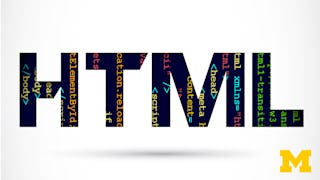 Status: Free TrialFree TrialU
Status: Free TrialFree TrialUUniversity of Michigan
Skills you'll gain: Hypertext Markup Language (HTML), Web Design, Web Content Accessibility Guidelines, Web Design and Development, Usability, Semantic Web, Cascading Style Sheets (CSS), Cloud Hosting, Web Servers, Data Validation, File Transfer Protocol (FTP)
4.7·Rating, 4.7 out of 5 stars28K reviewsBeginner · Course · 1 - 4 Weeks
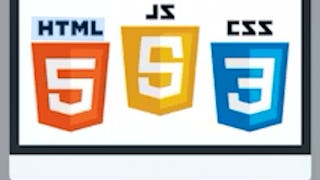 Status: Free TrialFree TrialJ
Status: Free TrialFree TrialJJohns Hopkins University
Skills you'll gain: HTML and CSS, Cascading Style Sheets (CSS), Ajax, Javascript, Responsive Web Design, Front-End Web Development, Web Design, Bootstrap (Front-End Framework), Web Development, Development Environment, Web Development Tools, Web Design and Development, JSON, Web Applications, Web Content Accessibility Guidelines, Scripting, Browser Compatibility, Hypertext Markup Language (HTML), Object Oriented Programming (OOP), Event-Driven Programming
4.7·Rating, 4.7 out of 5 stars17K reviewsBeginner · Specialization · 1 - 3 Months
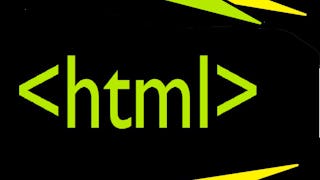 C
CCoursera
Skills you'll gain: Hypertext Markup Language (HTML), Front-End Web Development, Web Design and Development, Web Development, Web Development Tools, Web Applications, Web Content, Integrated Development Environments
4.6·Rating, 4.6 out of 5 stars2.2K reviewsBeginner · Guided Project · Less Than 2 Hours
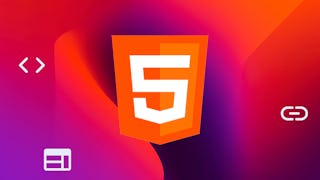 Status: Free TrialFree TrialU
Status: Free TrialFree TrialUUniversity of Michigan
Skills you'll gain: Wireframing, Responsive Web Design, HTML and CSS, Web Content Accessibility Guidelines, Cascading Style Sheets (CSS), Web Design, Hypertext Markup Language (HTML), Browser Compatibility, Bootstrap (Front-End Framework), Web Design and Development, Javascript, Front-End Web Development, User Interface (UI), Verification And Validation, Web Development, Interactive Design, Usability, Event-Driven Programming, User Interface (UI) Design, Web Development Tools
4.7·Rating, 4.7 out of 5 stars35K reviewsBeginner · Specialization · 3 - 6 Months
What brings you to Coursera today?
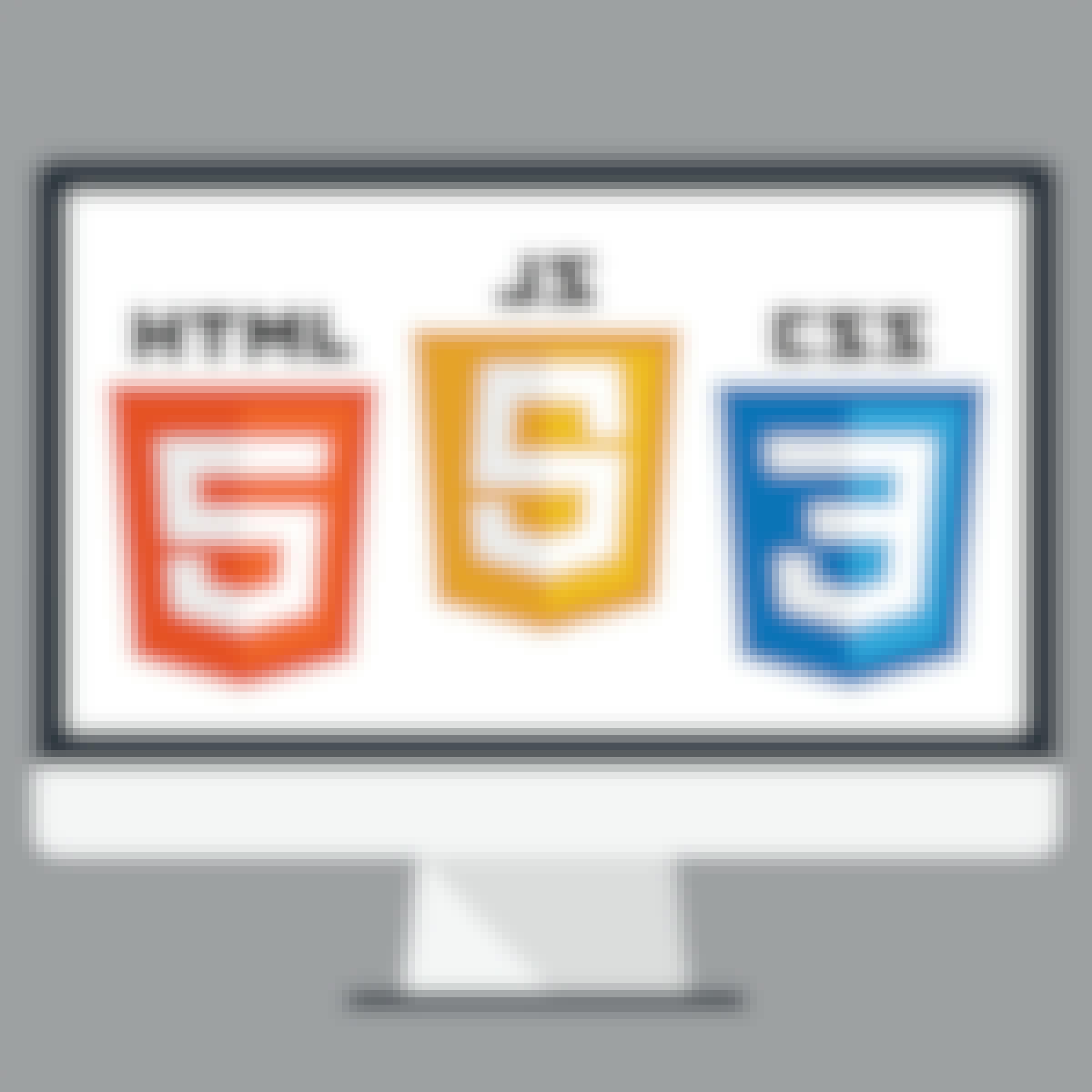 Status: Free TrialFree TrialJ
Status: Free TrialFree TrialJJohns Hopkins University
Skills you'll gain: HTML and CSS, Ajax, Javascript, Responsive Web Design, Front-End Web Development, Web Design, Web Applications, Cascading Style Sheets (CSS), Development Environment, Web Development Tools, Web Content Accessibility Guidelines
4.7·Rating, 4.7 out of 5 stars17K reviewsMixed · Course · 1 - 4 Weeks
 Status: Free TrialFree Trial
Status: Free TrialFree TrialSkills you'll gain: User Research, Cascading Style Sheets (CSS), User Experience Design, User Experience, Design Research, Linux Commands, Usability, Debugging, User Interface (UI), Software Versioning, Software Visualization, Web Content Accessibility Guidelines, Pseudocode, JavaScript Frameworks, User Interface and User Experience (UI/UX) Design, Javascript, Web Applications, Event-Driven Programming, Unit Testing, Application Programming Interface (API)
Build toward a degree
4.7·Rating, 4.7 out of 5 stars24K reviewsBeginner · Professional Certificate · 3 - 6 Months
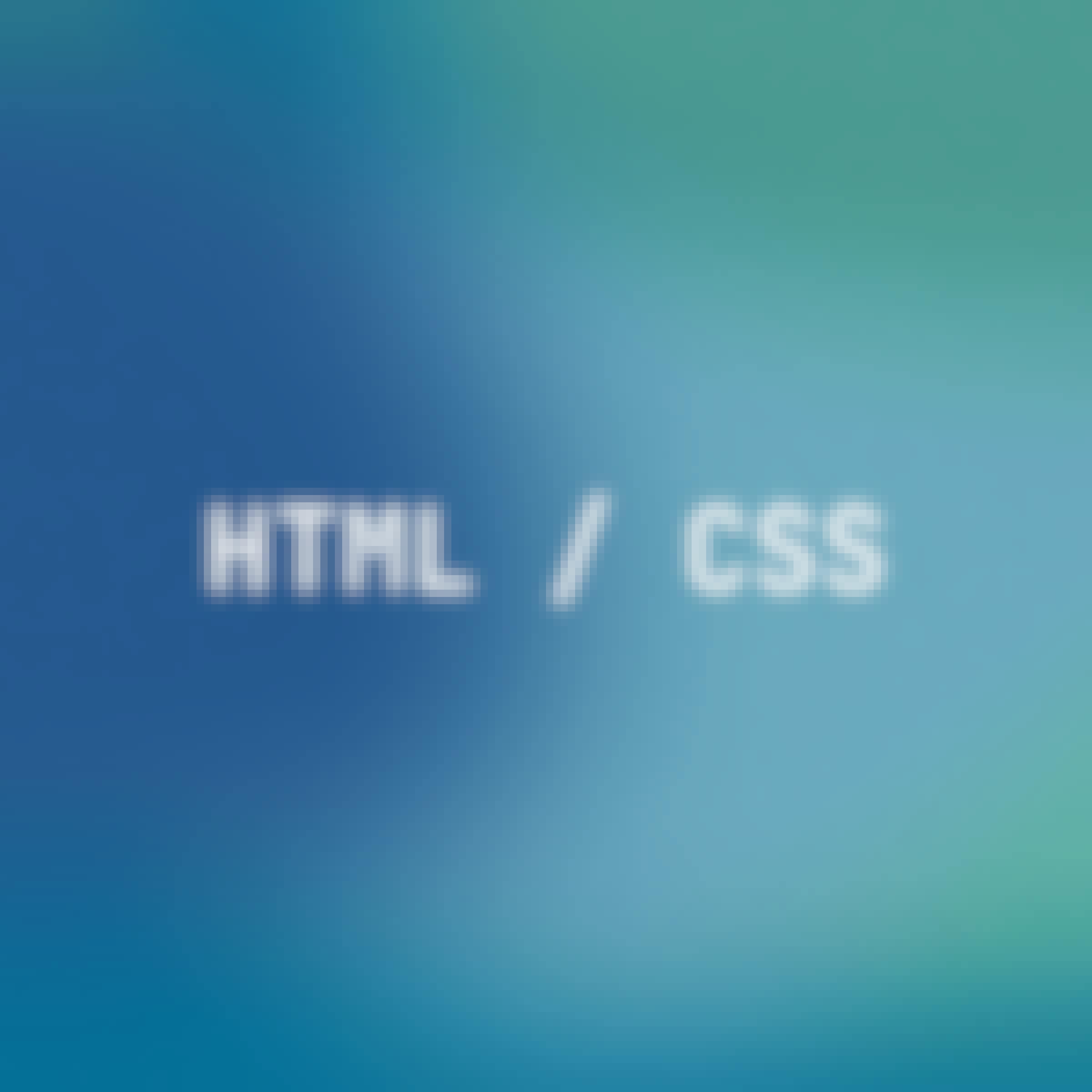 Status: PreviewPreviewS
Status: PreviewPreviewSScrimba
Skills you'll gain: HTML and CSS, Responsive Web Design, Cascading Style Sheets (CSS), Hypertext Markup Language (HTML), File Management, Web Design, Front-End Web Development, Web Development
4.8·Rating, 4.8 out of 5 stars72 reviewsBeginner · Course · 1 - 4 Weeks
 Status: NewNewStatus: Free TrialFree TrialU
Status: NewNewStatus: Free TrialFree TrialUUniversity of London
Skills you'll gain: Hypertext Markup Language (HTML), Web Content Accessibility Guidelines, Web Design and Development, Web Design, Semantic Web, Web Content, Web Development, Interactive Design
Beginner · Course · 1 - 4 Weeks
 Status: FreeFree
Status: FreeFreeSkills you'll gain: Cascading Style Sheets (CSS), Hypertext Markup Language (HTML), Web Development, HTML and CSS, Web Design and Development, Javascript, Front-End Web Development, Web Content, Responsive Web Design, Web Design
4.3·Rating, 4.3 out of 5 stars131 reviewsIntermediate · Guided Project · Less Than 2 Hours
 Status: Free TrialFree Trial
Status: Free TrialFree TrialSkills you'll gain: Hypertext Markup Language (HTML), HTML and CSS, Cascading Style Sheets (CSS), Web Design, Web Design and Development, Git (Version Control System), Front-End Web Development, Browser Compatibility, Mobile Development, Javascript, Animations, User Interface (UI), Web Development Tools, Web Content Accessibility Guidelines, Typography, Semantic Web, GitHub, Version Control, Application Deployment, Development Environment
Beginner · Specialization · 3 - 6 Months
What brings you to Coursera today?
In summary, here are 10 of our most popular html courses
- Introduction to HTML, CSS, & JavaScript: IBM
- HTML and CSS in depth: Meta
- Introduction to HTML5: University of Michigan
- HTML, CSS, and Javascript for Web Developers: Johns Hopkins University
- Introduction to HTML: Coursera
- Web Design for Everybody: Basics of Web Development & Coding: University of Michigan
- HTML, CSS, and Javascript for Web Developers: Johns Hopkins University
- Meta Front-End Developer: Meta
- HTML & CSS Crash Course: Scrimba
- HTML: How to Build a Website: University of London
Frequently Asked Questions about Html
HTML, or HyperText Markup Language, is the standard language used to create and design documents on the web. It serves as the backbone of web content, allowing developers to structure text, images, and other multimedia elements into a cohesive format. Understanding HTML is crucial because it forms the foundation for web development, enabling the creation of websites that are not only functional but also visually appealing. As the internet continues to grow, proficiency in HTML is increasingly important for anyone looking to engage with digital content or pursue a career in technology.
With skills in HTML, you can explore various job opportunities in the tech industry. Common roles include web developer, front-end developer, UI/UX designer, and content manager. These positions often require a solid understanding of HTML, as well as related technologies like CSS and JavaScript. Additionally, many companies seek individuals who can create and maintain websites, ensuring they are user-friendly and accessible. As businesses increasingly rely on digital platforms, the demand for professionals skilled in HTML continues to rise.
To effectively learn HTML, you should focus on several key skills. First, understanding the basic structure of HTML documents, including elements, tags, and attributes, is essential. Familiarity with semantic HTML, which enhances accessibility and SEO, is also important. Additionally, learning how to integrate CSS for styling and JavaScript for interactivity will significantly enhance your web development capabilities. Finally, practicing by building simple web pages and gradually increasing complexity will help solidify your knowledge and skills.
There are numerous online courses available for learning HTML, catering to various skill levels. Some of the best options include the HTML, CSS, and Javascript for Web Developers Specialization, which provides a comprehensive introduction to web development. Another excellent choice is the Build Website with HTML, JavaScript, AngularJS, and React Specialization, which covers both foundational and advanced topics. These courses often include hands-on projects to help you apply what you've learned.
Yes. You can start learning HTML on Coursera for free in two ways:
- Preview the first module of many HTML courses at no cost. This includes video lessons, readings, graded assignments, and Coursera Coach (where available).
- Start a 7-day free trial for Specializations or Coursera Plus. This gives you full access to all course content across eligible programs within the timeframe of your trial.
If you want to keep learning, earn a certificate in HTML, or unlock full course access after the preview or trial, you can upgrade or apply for financial aid.
To learn HTML effectively, start by familiarizing yourself with the basic syntax and structure of HTML documents. Utilize online resources, such as tutorials and courses, to guide your learning. Practice by creating simple web pages, gradually incorporating more complex elements as you progress. Engaging in projects, such as building a personal website or contributing to open-source projects, can also enhance your understanding. Additionally, joining online communities or forums can provide support and feedback as you learn.
HTML courses typically cover a range of topics essential for web development. Key subjects include the basic structure of HTML documents, common tags and attributes, semantic HTML, and how to create forms and tables. Many courses also introduce CSS for styling and JavaScript for interactivity, providing a well-rounded foundation in web development. Advanced courses may explore responsive design, accessibility best practices, and integration with other web technologies.
For training and upskilling employees, courses like the Full-Stack Web Development: PHP, HTML, CSS & JavaScript Specialization are particularly beneficial. These programs provide comprehensive training that equips learners with the skills needed to build dynamic websites. Additionally, the Front-End Web Development for Beginners Specialization is excellent for those new to web development, offering foundational knowledge in HTML and related technologies.










